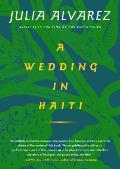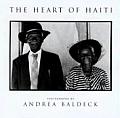
Early on in the writing of my books, I choose a title. It's usually a title that reminds me what I think the book is about. Sometimes the titles change, as I never really know what a book is about until I've written it. But the title is my North Star to steer by as I navigate my way, paragraph by paragraph, towards the finished book I'm imagining I am writing.
After I'm done with the writing, other people enter into the process, all with opinions about the title I've given my book. First comes my editor, Shannon Ravenel, who has been reading drafts of the manuscript, but has held off commenting on the title until now. She wouldn't think of nixing a navigation device while I am still using it. I recall how during the writing of my first novel, she kept mum about my working title: Daughters of Invention, based on a malaprop of the mami in the book. When I turned in my final draft, Shannon told me that my title was just too dull for the lively García family I had created. I fumed and fussed, and we spent several weeks of back-and-forth phone calls (this was before the advent of emails). On one of those calls, Shannon suggested we just brainstorm what the book was about.
I rattled off a bunch of descriptive phrases, among them, "It's about how the García girls lost their accents!"
"Perfect!" Shannon cried.
A Wedding in Haiti began as a travel journal, so when I first started moving from journal to manuscript, I titled it, Going to Piti's Wedding in Haiti. I had written nonfiction before, but it wasn't my accustomed genre, so I needed a simple, straightforward, pedestrian title to keep me on course.
Of course, when you write, there is no "on course." As the Machado poem says, "Traveler, there is no path, the path is made by walking." But if you need a little boost of confidence — and I often do — you tell yourself you are on course, steering by that North Star title. Then, when discoveries and surprises occur, you detour, and that detour turns into a path. And you look for a new title to steer your new course.
 One of my discoveries in reading about Haiti was the richness of proverbs in Kreyòl, no surprise in an oral culture. (The Dominican Republic abounds in them, as well.) One book, in particular, became a favorite, Andrea Baldeck's The Heart of Haiti (out of print but I'm sure Powell's can get it for you), a collection of wonderful photos, each one captioned with a Haitian proverb. One of them became the title of my growing manuscript: Jé pa gin bòday (the eye has no boundary).
One of my discoveries in reading about Haiti was the richness of proverbs in Kreyòl, no surprise in an oral culture. (The Dominican Republic abounds in them, as well.) One book, in particular, became a favorite, Andrea Baldeck's The Heart of Haiti (out of print but I'm sure Powell's can get it for you), a collection of wonderful photos, each one captioned with a Haitian proverb. One of them became the title of my growing manuscript: Jé pa gin bòday (the eye has no boundary).
But as I began to write about the devastating earthquake in part two, I needed a new North Star. One of the haunting phrases quoted in the book was spoken by a friend about her own experience encountering extreme poverty for the first time on a trip to Brazil. "When we have seen a thing, what then is the obligation?" That was the question I wanted my readers to be asking themselves. So, The Eye Has No Boundary was replaced by When We Have Seen.

Isaías Orozco Lang's photo was the perfect match for the Haitian saying,
the eye has no boundary. Check out Orozco Lang's great photos of a Dominican barrio in
Glimpses of La Yagüita, published 2003 by El León.
©Isaías Orozco Lang
But such a vague title begged a subtitle, and that's when the lid lifted in the Pandora's box of title and subtitle possibilities! Every week I had new ones. Some days it seemed the only writing I did was coming up with titles and subtitles.
It was at this point that I met Mike McKenna, the CEO of an advertising agency, who has worked with clients like Adidas, Advil, Sprint, United Negro College Fund, among others. ("A mind is a terrible thing to waste," was one of his collaborations.) I confessed my title quandary, and I asked Mike if he'd be willing to look at the finished manuscript and offer some suggestions.
Mike was over-the-top generous. He read the manuscript quickly and offered several enthusiastic paragraphs of response to the content. Then he prefaced his title suggestions with a rueful "I am now taking the approach of an ad guy, crassly trying to sell the book." I was known for my fiction and poetry, he noted, so I needed to let my readers know what they were in for. "I've been told by my friends in the movie business that adding 'a true story' or 'based on actual events' drew bigger audiences. You might want to use A True Story by Julia Alvarez as a subtitle."
As for titles, Mike had almost a dozen. One title, which I liked a lot, was A Wedding in Haiti: Exploring a Hard Place and Finding Love, but the consensus was that it sounded "too cheesy." More cheesy I thought was Haiti Blessings: Sometimes Love Is the Only Thing You Have. Cheese is part of finding the perfect title, Mike reminded me in a subsequent conversation. When you spend days, weeks, months brainstorming, you come up with truckloads of groaners. And then a little gem shines forth.
But that gem eluded us! Until I went back over the lists of titles, and there it was, that little gem among groaners, A Wedding in Haiti, one of Mike's suggestions. But still up for grabs was: what to subtitle it. No one at Algonquin — sorry, movie folks — liked A True Story. Instead they began pushing for the subtitle A Memoir, which I vetoed. This little book was not just about me, a memoir, but an usmoir. How about that as a subtitle? No one, but no one, I was told was going to buy a book in a genre they never heard of!
So, we all compromised: the title, plain and simple, would be A Wedding in Haiti, without a subtitle.
Off I went to Alta Gracia for the month of January, out of cell phone range, without Internet access. A few times a week, I came down the mountain to a cafe with wireless in the village of Jarabacoa. One afternoon I found several urgent emails from my publisher: the book needed a subtitle.
Among the suggestions was one that caught my eye: "The story of a friendship." Yes! That is what this book is about: connection, solidarity, compassion, in a word, friendship. And so it was, the book had found its full title: A Wedding in Haiti: The Story of a Friendship.
Nine words can be more difficult to come up with than fifty thousand. Sometimes writing the book is the easy part.